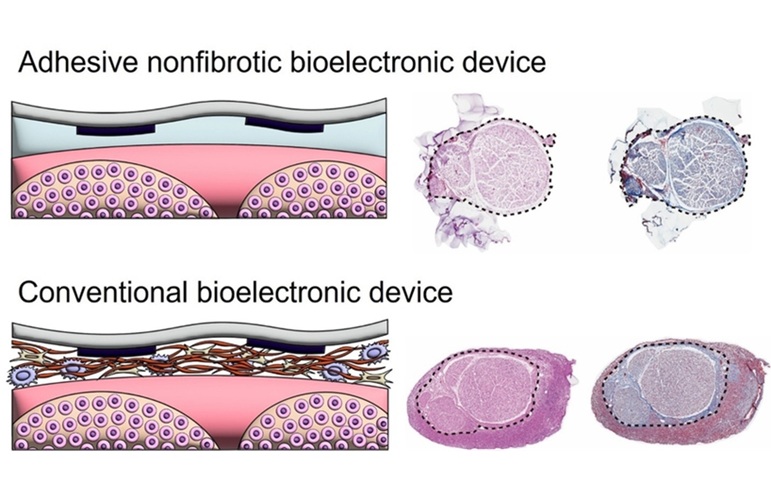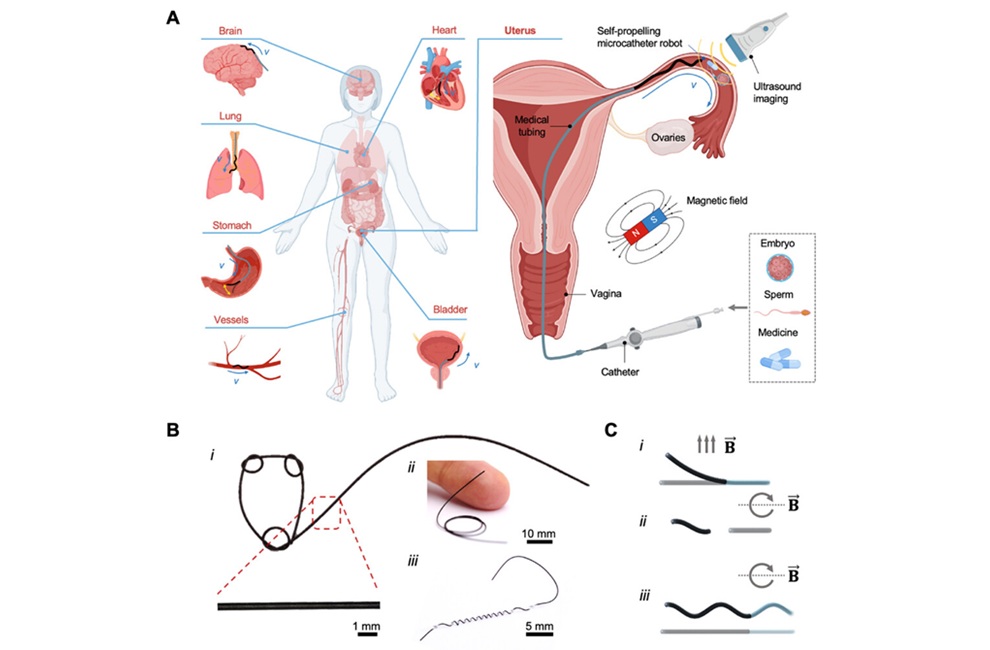Ground-Breaking Study Finds Plant-Derived Antiviral to Be Effective Against COVID-19
|
By HospiMedica International staff writers Posted on 04 Feb 2021 |

Illustration
Researchers have discovered a novel antiviral property of a drug that could have major implications in how future epidemics/pandemics - including COVID-19 - are managed.
The study by researchers from the University of Nottingham (Nottingham, UK) has shown that thapsigargin is a promising broad-spectrum antiviral, highly effective against SARS-CoV-2, a common cold coronavirus, respiratory syncytial virus (RSV) and the influenza A virus. Given that acute respiratory virus infections caused by different viruses are clinically indistinguishable on presentation, an effective broad-spectrum that can target different virus types at the same time could significantly improve clinical management. An antiviral of this type could potentially be made available for community use to control active infection and its spread.
In their ground-breaking study, the team of experts found that the plant-derived antiviral, at small doses, triggered a highly effective broad-spectrum host-centered antiviral innate immune response against three major types of human respiratory viruses – including COVID-19. The key features based on cell and animal studies, which make thapsigargin a promising antiviral are that it is effective against viral infection when used before or during active infection and is able to prevent a virus from making new copies of itself in cells for at least 48 hours after a single 30-minute exposure.
The study also found that thapsigargin was stable in acidic pH, as found in the stomach, and therefore can be taken orally, so could be administered without the need for injections or hospital admission. Thapsigargin was not found to be sensitive to virus resistance and proved at least several hundred-fold more effective than current antiviral options. The researchers found thapsigargin was just as effective in blocking combined infection with coronavirus and influenza A virus as in single-virus infection. Given that influenza virus, coronavirus and RSV are global pathogens of humans as well as animals, thapsigargin represents a lead compound in the development of a new generation of powerful host-centered antivirals (as opposed to conventional antiviral drugs that directly target viruses) that could even be adopted in a holistic "One Health" approach to control human and animal viruses.
“The current pandemic highlights the need for effective antivirals to treat active infections, as well as vaccines, to prevent the infection,” said Professor Kin-Chow Chang who led the study. “Given that future pandemics are likely to be of animal origin, where animal to human (zoonotic) and reverse zoonotic (human to animal) spread take place, a new generation of antivirals, such as thapsigargin, could play a key role in the control and treatment of important viral infections in both humans and animals.”
“Although more testing is clearly needed, current findings strongly indicate that thapsigargin and its derivatives are promising antiviral treatments against COVID-19 and influenza virus, and have the potential to defend us against the next Disease X pandemic,” added Professor Chang.
Related Links:
University of Nottingham
The study by researchers from the University of Nottingham (Nottingham, UK) has shown that thapsigargin is a promising broad-spectrum antiviral, highly effective against SARS-CoV-2, a common cold coronavirus, respiratory syncytial virus (RSV) and the influenza A virus. Given that acute respiratory virus infections caused by different viruses are clinically indistinguishable on presentation, an effective broad-spectrum that can target different virus types at the same time could significantly improve clinical management. An antiviral of this type could potentially be made available for community use to control active infection and its spread.
In their ground-breaking study, the team of experts found that the plant-derived antiviral, at small doses, triggered a highly effective broad-spectrum host-centered antiviral innate immune response against three major types of human respiratory viruses – including COVID-19. The key features based on cell and animal studies, which make thapsigargin a promising antiviral are that it is effective against viral infection when used before or during active infection and is able to prevent a virus from making new copies of itself in cells for at least 48 hours after a single 30-minute exposure.
The study also found that thapsigargin was stable in acidic pH, as found in the stomach, and therefore can be taken orally, so could be administered without the need for injections or hospital admission. Thapsigargin was not found to be sensitive to virus resistance and proved at least several hundred-fold more effective than current antiviral options. The researchers found thapsigargin was just as effective in blocking combined infection with coronavirus and influenza A virus as in single-virus infection. Given that influenza virus, coronavirus and RSV are global pathogens of humans as well as animals, thapsigargin represents a lead compound in the development of a new generation of powerful host-centered antivirals (as opposed to conventional antiviral drugs that directly target viruses) that could even be adopted in a holistic "One Health" approach to control human and animal viruses.
“The current pandemic highlights the need for effective antivirals to treat active infections, as well as vaccines, to prevent the infection,” said Professor Kin-Chow Chang who led the study. “Given that future pandemics are likely to be of animal origin, where animal to human (zoonotic) and reverse zoonotic (human to animal) spread take place, a new generation of antivirals, such as thapsigargin, could play a key role in the control and treatment of important viral infections in both humans and animals.”
“Although more testing is clearly needed, current findings strongly indicate that thapsigargin and its derivatives are promising antiviral treatments against COVID-19 and influenza virus, and have the potential to defend us against the next Disease X pandemic,” added Professor Chang.
Related Links:
University of Nottingham
Latest COVID-19 News
- Low-Cost System Detects SARS-CoV-2 Virus in Hospital Air Using High-Tech Bubbles
- World's First Inhalable COVID-19 Vaccine Approved in China
- COVID-19 Vaccine Patch Fights SARS-CoV-2 Variants Better than Needles
- Blood Viscosity Testing Can Predict Risk of Death in Hospitalized COVID-19 Patients
- ‘Covid Computer’ Uses AI to Detect COVID-19 from Chest CT Scans
- MRI Lung-Imaging Technique Shows Cause of Long-COVID Symptoms
- Chest CT Scans of COVID-19 Patients Could Help Distinguish Between SARS-CoV-2 Variants
- Specialized MRI Detects Lung Abnormalities in Non-Hospitalized Long COVID Patients
- AI Algorithm Identifies Hospitalized Patients at Highest Risk of Dying From COVID-19
- Sweat Sensor Detects Key Biomarkers That Provide Early Warning of COVID-19 and Flu
- Study Assesses Impact of COVID-19 on Ventilation/Perfusion Scintigraphy
- CT Imaging Study Finds Vaccination Reduces Risk of COVID-19 Associated Pulmonary Embolism
- Third Day in Hospital a ‘Tipping Point’ in Severity of COVID-19 Pneumonia
- Longer Interval Between COVID-19 Vaccines Generates Up to Nine Times as Many Antibodies
- AI Model for Monitoring COVID-19 Predicts Mortality Within First 30 Days of Admission
- AI Predicts COVID Prognosis at Near-Expert Level Based Off CT Scans
Channels
Critical Care
view channel
Bioadhesive Strategy Prevents Fibrosis Around Device Implants on Peripheral Nerves
Peripheral nerves connect the brain and spinal cord to muscles, organs, and sensory systems, making them key targets for treating neurological and systemic diseases. However, implantable bioelectronic... Read more
Miniature Non-Invasive Robotic Catheters to Improve Infertility Treatments
Minimally invasive procedures in reproductive and gynaecological medicine are often limited by the difficulty of navigating narrow, delicate anatomical pathways without damaging surrounding tissue.... Read moreSurgical Techniques
view channel
Catheter-Based Procedures Offer Less Invasive Option for Treatment of Valvular Disease
Valvular heart disease, caused by tight or leaky valves between heart chambers, affects up to 10% of older adults and leads to more than 120,000 deaths globally each year. Traditional open-heart surgery... Read moreLaparoscopic Surgery Improves Outcomes for Severe Newborn Liver Disease
Biliary atresia is a rare but life-threatening liver condition in newborns that blocks bile flow and leads to progressive liver damage if not treated early. Surgery is typically performed within the first... Read morePatient Care
view channel
Revolutionary Automatic IV-Line Flushing Device to Enhance Infusion Care
More than 80% of in-hospital patients receive intravenous (IV) therapy. Every dose of IV medicine delivered in a small volume (<250 mL) infusion bag should be followed by subsequent flushing to ensure... Read more
VR Training Tool Combats Contamination of Portable Medical Equipment
Healthcare-associated infections (HAIs) impact one in every 31 patients, cause nearly 100,000 deaths each year, and cost USD 28.4 billion in direct medical expenses. Notably, up to 75% of these infections... Read more
Portable Biosensor Platform to Reduce Hospital-Acquired Infections
Approximately 4 million patients in the European Union acquire healthcare-associated infections (HAIs) or nosocomial infections each year, with around 37,000 deaths directly resulting from these infections,... Read moreFirst-Of-Its-Kind Portable Germicidal Light Technology Disinfects High-Touch Clinical Surfaces in Seconds
Reducing healthcare-acquired infections (HAIs) remains a pressing issue within global healthcare systems. In the United States alone, 1.7 million patients contract HAIs annually, leading to approximately... Read moreHealth IT
view channel
EMR-Based Tool Predicts Graft Failure After Kidney Transplant
Kidney transplantation offers patients with end-stage kidney disease longer survival and better quality of life than dialysis, yet graft failure remains a major challenge. Although a successful transplant... Read more
Printable Molecule-Selective Nanoparticles Enable Mass Production of Wearable Biosensors
The future of medicine is likely to focus on the personalization of healthcare—understanding exactly what an individual requires and delivering the appropriate combination of nutrients, metabolites, and... Read moreBusiness
view channel
Philips and Masimo Partner to Advance Patient Monitoring Measurement Technologies
Royal Philips (Amsterdam, Netherlands) and Masimo (Irvine, California, USA) have renewed their multi-year strategic collaboration, combining Philips’ expertise in patient monitoring with Masimo’s noninvasive... Read more
B. Braun Acquires Digital Microsurgery Company True Digital Surgery
The high-end microsurgery market in neurosurgery, spine, and ENT is undergoing a significant transformation. Traditional analog microscopes are giving way to digital exoscopes, which provide improved visualization,... Read more
CMEF 2025 to Promote Holistic and High-Quality Development of Medical and Health Industry
The 92nd China International Medical Equipment Fair (CMEF 2025) Autumn Exhibition is scheduled to be held from September 26 to 29 at the China Import and Export Fair Complex (Canton Fair Complex) in Guangzhou.... Read more
















